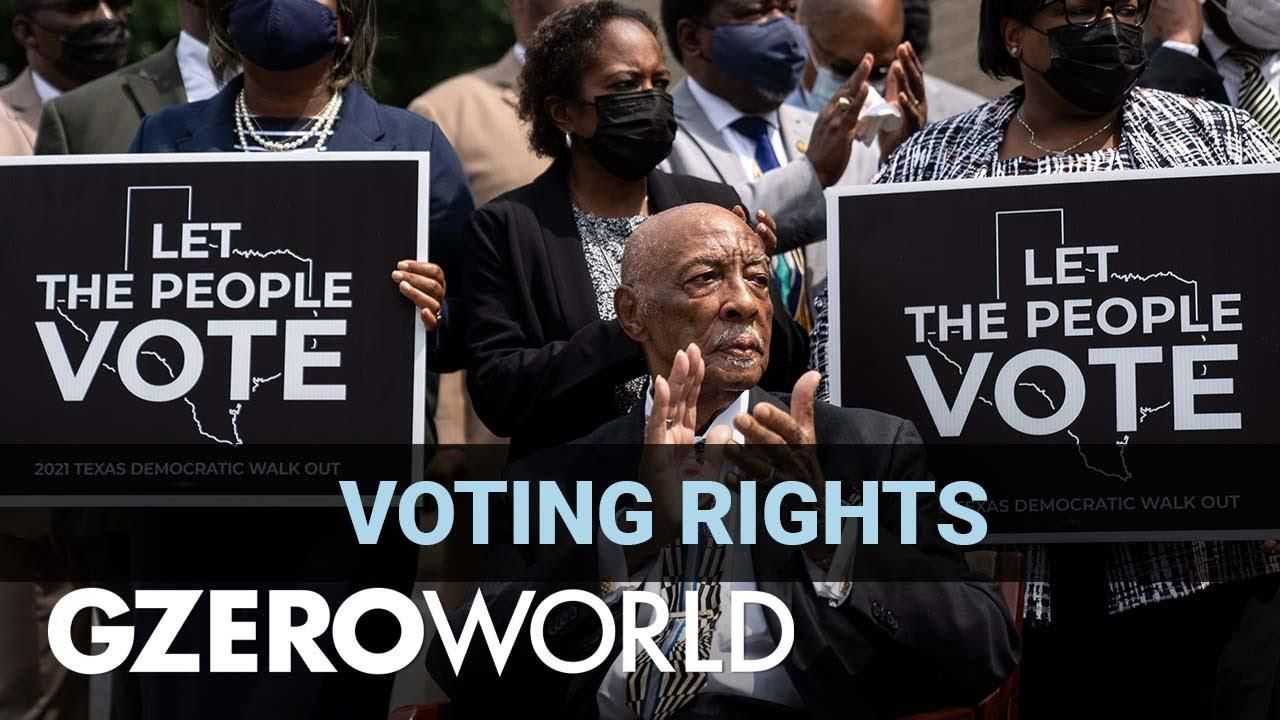GZERO World with Ian Bremmer
Black voter suppression in 2022

Black Voter Suppression in 2022 | GZERO World with Ian Bremmer

Until the 1965 Voting Rights Act, Black people in America who wanted to vote faced impossible poll questions and literacy tests. But the Supreme Court gutted the law in 2013, allowing states to pass new voting legislation that progressives say restrict Black access to the ballot box.
The 2022 midterm elections will be the first major test of these laws — which Democrats in Congress are unlikely to be able to stop. How will this all affect Black turnout in November?
On this episode of GZERO World, Pulitzer Prize-winning columnist Clarence Page tells Ian Bremmer that if Trump loyalists win in key states, their legislatures — not voters — may end up deciding the next US presidential race.What may happen in 2024 reminds him of 1876, when Page says the end of Reconstruction after the Civil War, along with a disputed presidential election, ushered in the Jim Crow laws that ended his ancestors' ability to vote in Alabama.
What's driving all this? For Page, part of the problem is the grievance narrative around critical race theory, which has made some Americans confused between being a Democrat and being democratic.
Still, he says you can't deny that Republicans want to make it harder to vote, while Democrats try to make it easier. That's a big problem because "we're at loggerheads over who should be allowed to vote and, and who shouldn't."
Page also compares President Biden's pledge to nominate a Black woman to fill Justice Breyer's seat on the Supreme Court to Ronald Reagan's decision to pick Sandra Day O'Connor. And as a bonus, Ian looks back at the history of Black women judges in America.
41.5%: The proportion of Havana’s garbage trucks that were operational this month, according to state-run media, as Cuba’s fuel crisis prompts a garbage crisis.
Sovereignty has become one of the most powerful, and least defined, words in tech policy. At the 2026 Munich Security Conference, SAP global head of government affairs, Wolfgang Dierker, explains why governments and enterprise customers are demanding more control over their data, cloud infrastructure, and AI systems amid rising geopolitical uncertainty.
On the sidelines of the 2026 Munich Security Conference, Annemarie Hou, Executive Director of the United Nations Office of Partnerships, joined Tony Maciulis to discuss the power of women leaders in global decision-making.
In a new Global Stage livestream from the 2026 Munich Security Conference, New York Times White House and national security correspondent David Sanger moderates a conversation with Ian Bremmer (President & Founder, Eurasia Group and GZERO Media), Brad Smith (Vice Chair & President, Microsoft), Benedetta Berti (Secretary General, NATO Parliamentary Assembly), and Wolfgang Dierker (Global Head of Government Affairs, SAP) on how technology and defense are colliding in real time.